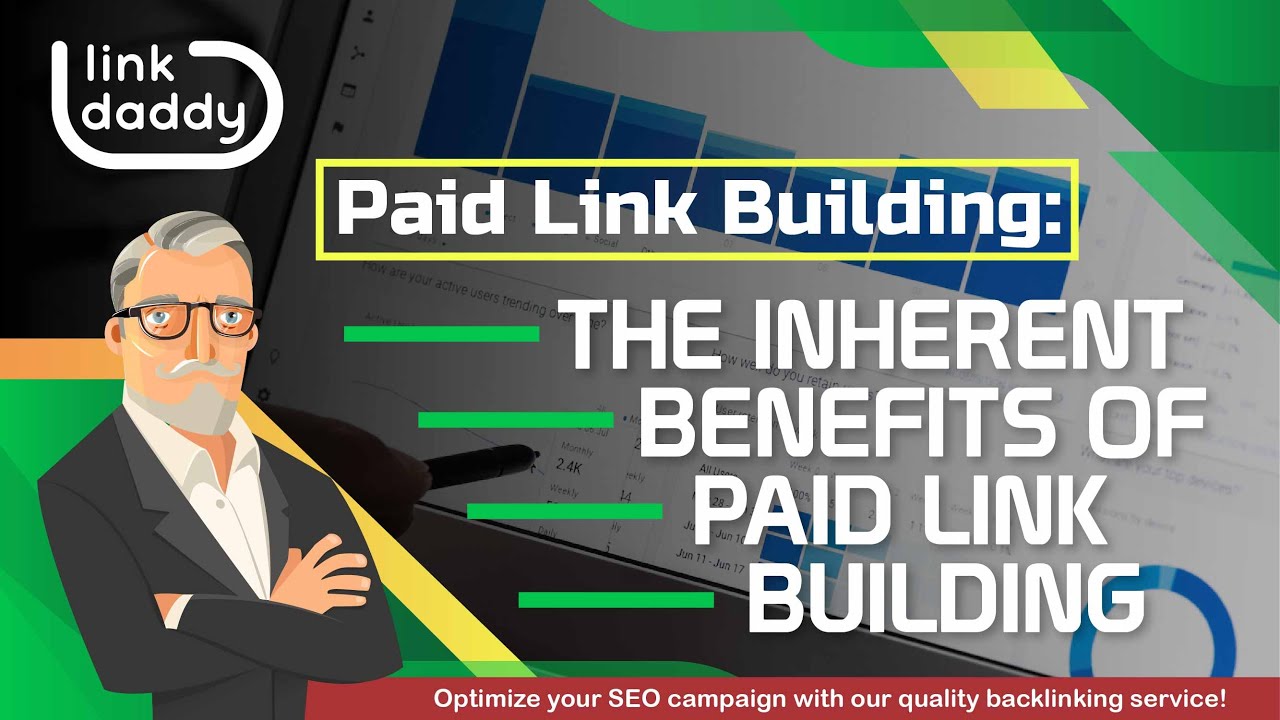When it comes to SEOand link building, many people wonder whether paid links have an impact on Google's ranking algorithm. The answer is yes, paid links can impact your ranking, but not in the way you might expect. Let's dive into what paid link buildingis and the factors that influence your website's ranking.
What Are Paid Links?
Paid links refer to links that you purchase from other websites for the purpose of improving your website's search engineranking.
These links are often placed on other websites that have high domain authorityor a significant amount of traffic. In the past, paid links were a popular way to improve website ranking, but Google has since cracked down on the practice.
Are Paid Links A Google Ranking Factor?
Yes, paid links are a Google ranking factor. However, it is not the act of purchasing links that is the issue; it is the manipulation of search results that Google is concerned about. Google's guidelines state that any links that are purchased with the intent of manipulating search results are considered a violation of their policies.

How Does Google Know If You’ve Bought Links?
How Does Google Detect Paid Links?
Google has sophisticated algorithms that can detect paid links. These algorithms look for patterns that suggest that links have been purchased with the intent of manipulating search results. Some of the patterns that Google looks for include:
- Links that appear in the same location on multiple websites
- Links that are unrelated to the contenton the page
- Links that are embedded in widgets or footers
- Links that are placed on low-quality websites
The Dangers Of Paid Link Building
Paid link building is the practice of purchasing links to your website with the intent of manipulating search engine rankings. While it may seem like a quick and easy way to boost your website's search engine ranking, it comes with significant risks.
Violation Of Google's Webmaster Guidelines
Paid link building violates Google's Webmaster Guidelines, which explicitly prohibit any attempts to manipulate search engine rankings.
Google's algorithms are designed to identify any attempts to manipulate search results, and websites that are caught using paid links can face severe penalties, including being removed from search results entirely.
Risk Of Penalties And Loss Of Reputation
Using paid links can harm your website's reputation and credibility. If your website is penalized by Google for using paid links, it can be challenging to recover your rankings and regain the trust of your audience.
Additionally, customers are more likely to trust websites that appear at the top of search results due to their relevance and authority, rather than those that have paid their way to the top.
Decreased ROI And Wasted Resources
Paid link building can also be a waste of resources and lead to decreased ROI. While paid links may provide a quick boost to your website's search engine ranking, they do not offer the same long-term benefits as natural link building. Over time, the cost of purchasing links can add up, leading to a negative return on investment.
Potential For Irrelevant And Spammy Links
When purchasing links, there is also the risk of obtaining irrelevant or spammy links. Links from irrelevant or spammy websites can harm your website's search engine ranking and reputation, as they are not relevant to your website's content or audience.
Additionally, Google's algorithms can flag links from irrelevant or spammy websites as manipulative or suspicious, leading to penalties and a decrease in search engine ranking.
Difficulty In Removing Paid Links
Finally, removing paid links can be a difficult and time-consuming process. If your website has been penalized for using paid links, you may need to remove those links to recover your rankings.
However, some websites may be unwilling to remove the links or may charge a fee for their removal. This can be a frustrating and costly process, and it highlights the importance of ethical and sustainable link building practices.
The Benefits Of Natural Link Building
Natural link building is the process of obtaining links to your website through organic means, such as creating high-quality content that other websites naturally link to. While it can take more time and effort than using paid links, it is a more sustainable and effective long-term strategy for improving your website's search engine ranking.
Natural link building helps to establish your website's authority and credibility within your industry, which can attract more traffic and customers to your business. Additionally, because the links are obtained through organic means, they are less likely to be flagged by Google's algorithms as manipulative or suspicious.

Paid Link Building - The Inherent Benefits of Paid Link Building
The Importance Of Link Quality
When building links to your website, it is essential to focus on quality rather than quantity. A few high-quality links from reputable websites within your industry can have a much more significant impact on your website's search engine ranking than a large number of low-quality links from irrelevant or spammy websites.
Quality links are those that are relevant to your website's content, come from reputable sources, and are obtained through organic means. They help to establish your website's authority and credibility within your industry and can attract more traffic and customers to your business.
Best Practices For Ethical Link Building
To build a strong and sustainable link profile, it is essential to follow ethical link-building practices. Some best practices include:
- Creating high-quality content that other websites naturally link to
- Building relationships with other websites in your industry and collaborating on content
- Using social mediato promote your content and attract links
- Conducting outreach to websites and asking them to link to your content if it is relevant and valuable to their audience
By following these best practices, you can establish a strong and sustainable link profile that improves your website's search engine ranking over time.
What Are Some Alternative Ways To Build Links?
Rather than using paid links, there are several alternative ways to build links that are considered ethical and effective. These include:
- Creating high-quality content that other websites want to link to
- Guest posting on other websites
- Engaging in social media marketing
- Building relationships with other websites in your niche
People Also Ask
How Do I Know If A Link Is A Paid Link?
It can be challenging to identify paid links, as they are often embedded in content and do not have any obvious indicators. However, some signs that a link may be paid include a large number of links from the same website, links that are unrelated to the content on the page, and links that are embedded in widgets or footers.
Is It Ever Okay To Use Paid Links?
Google's guidelines state that any links that are purchased with the intent of manipulating search results are considered a violation of their policies. While it may be tempting to use paid links to improve your website's ranking, it is essential to focus on ethical link-building practices to avoid penalties and damage to your reputation.
How Long Does It Take To Build High-Quality Links?
Building high-quality links can be a time-consuming process that requires a significant amount of effort and resources. Depending on your niche and the competitiveness of your industry, it can take several months or even years to build a strong link profile that can improve your website ranking. However, it is important to note that the time and effort put into building high-quality links is worth it in the long run, as it can have a significant impact on your website's search engine ranking.
Can I Get Penalized For Links That I Did Not Purchase?
Yes, it is possible to get penalized for links that you did not purchase. Google's algorithms are designed to identify any attempts to manipulate search results, regardless of whether the links were purchased or obtained through other means. It is essential to monitor your link profile regularly and disavow any links that are deemed suspicious or harmful to your website's ranking.
Are All Paid Links Bad For SEO?
Not all paid links are bad for SEO. If the links are obtained naturally and are relevant to your website's content, they can have a positive impact on your website's search engine ranking. However, it is important to note that Google's guidelines prohibit the purchase of links with the intent of manipulating search results.
How Can I Improve My Website's Ranking Without Using Paid Links?
There are several ways to improve your website's ranking without using paid links. These include creating high-quality content, optimizing your website's on-page SEO, building relationships with other websites in your niche, and engaging in social media marketing. By following ethical link-building practices and focusing on creating a high-quality user experience, you can improve your website's search engine ranking over time.
How Can I Recover From A Penalty For Using Paid Links?
Recovering from a penalty for using paid links can be a challenging and time-consuming process. The first step is to identify the links that are causing the penalty and remove or disavow them. Next, you should focus on building a strong link profile using ethical link-building practices. It is important to note that recovering from a penalty can take several months or even years, depending on the severity of the penalty and the effort put into fixing the issue.
Conclusion
In conclusion, paid link building can have a negative impact on your website's search engine ranking if they are used to manipulate search results. It is essential to focus on creating high-quality content and building relationships with other websites to improve your website's ranking.
By following Google's guidelines and using ethical link-building practices, you can improve your website's search engine ranking without risking penalties or damage to your reputation.